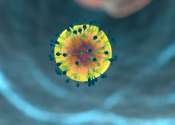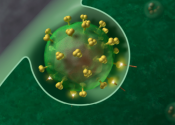Overlooked immune cells hold breakthrough for treating aggressive cancers
The latest generation of cancer treatments spring from the discovery that the human immune system is able to beat the disease. Like Dorothy in "The Wizard of Oz," what research teams around the world have spent decades searching ...
Dec 20, 2017
0
639









